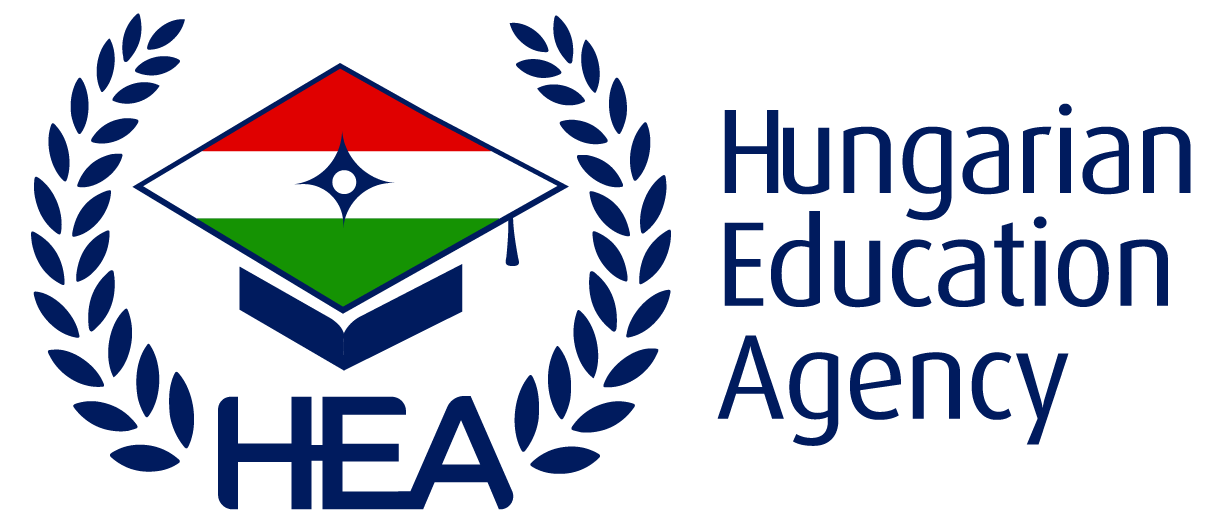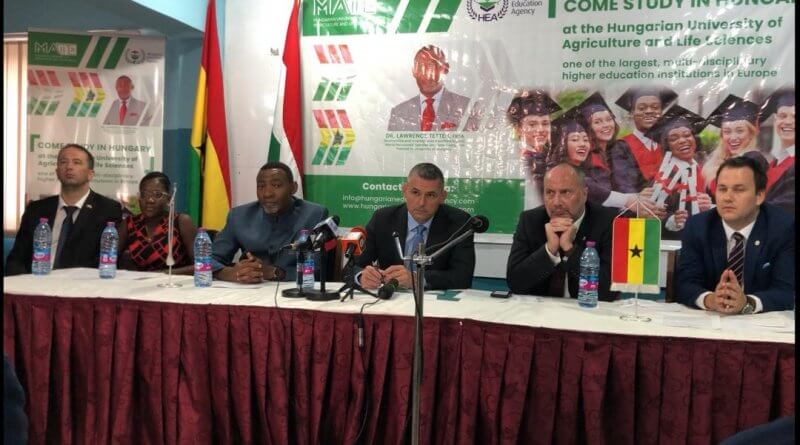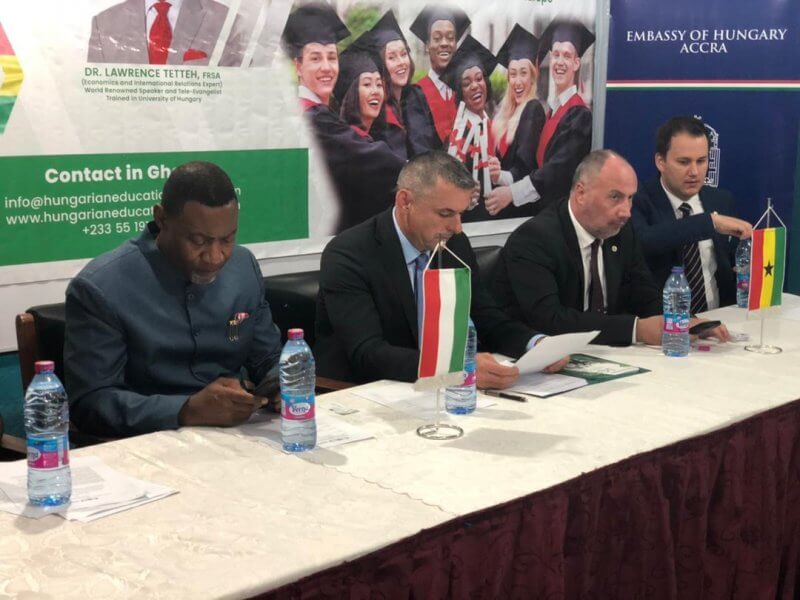Accra, June 17, GNA – One of the largest agricultural-related universities in Central Europe, the Hungarian University of Agriculture and Life Sciences, has opened a recruitment agency, in Accra, to strengthen bilateral cooperation with Ghana.
Known as the ‘Hungarian Education Agency’, it would serve as the first point of contact and provide assistance and guidance on the application process and available courses to Ghanaian students who wish to study in that country.
The University offers Degree programmes in Agriculture, Environmental, Food Sciences, Horticulture, Viticulture, Oenology, Water and Renewable Energy Management, Landscape Architecture, Mechanical Engineering, Rural Development, Economics and Social Sciences.
Professor Csaba Gyurizca, the Rector of the University, speaking at the inauguration, said their programmes were available at all levels – from Bachelor to the Doctor of Philosophy (PhD).
“As one of the largest
agricultural-oriented multidisciplinary tertiary institution in Central Europe, our mission is to provide world-class education that offers alumni a promising career and makes them competitive on the job market,” he stated.
Prof Gyurizca said it was no co-incidence that Hungary had been one of the key players in Ghana’s agricultural sector, particularly, in the areas of food/agro processing, bioethanol production, animal and crop production.
There was also the transfer of knowledge, technology and technical expertise.
He said with the great potential that Ghana’s agricultural sector possessed it was imperative for the younger generation to the acquire the relevant knowledge and skills to maximise the benefits thereof.
The Rector said due to the agricultural prowess of Hungary, the potentials for mutually beneficial agriculture-related exchange on different levels between the two countries were virtually endless.
He urged Ghanaians to also take advantage of their scholarship scheme to have more students enrol.
Mr Andras Szabo, the Ambassador of Hungary to Ghana, noted that Hungary’s successful new Africa policy led to the opening of their Embassy in the country in 2016 to improve and sustain its ties with Ghana through bilateral cooperation on the field of education, sanitation, agriculture and health.
“This remarkable cooperation has led to the successful implementation of the Stipendum Hungaricum Programme, which currently offers 100 scholarships to Ghana annually,” he said.
Ambassador Szabo said to complement this education initiative, the Embassy had decided to widen the range of opportunities for Ghanaian students who wished to study in Hungary.
Dr Lawrence Tetteh, the International Coordinator of Hungarian Trained Scholars, and Economic and an International Relations Expert, said the best part of the Hungarian Education System was that it offered a wide range of extracurricular activities.
The world renowned Speaker and Tele-Evangelist said professional development opportunities were excellent and students could participate in study competitions, join research groups or volunteer as teaching assistants.
Dr Tetteh, who also studied in that country, thus urged all to take advantage of the study abroad initiative to study in Hungary.
GNA



